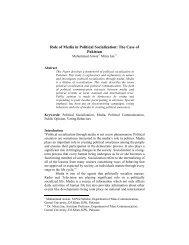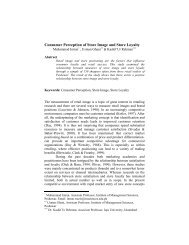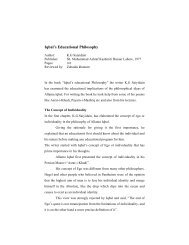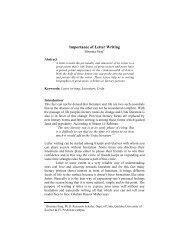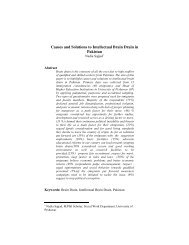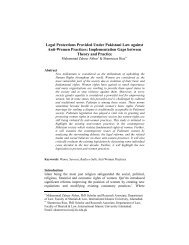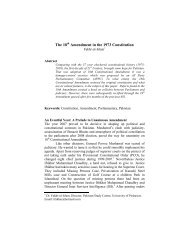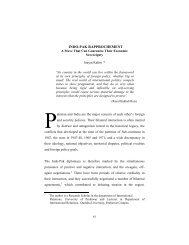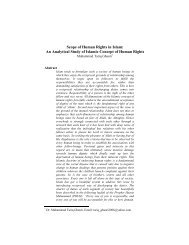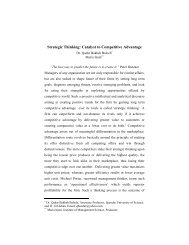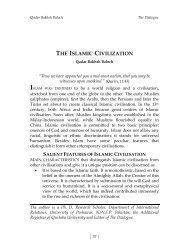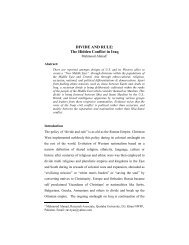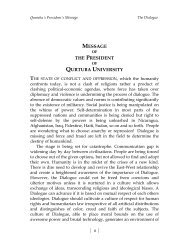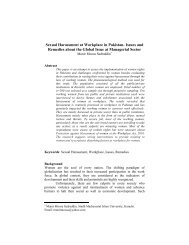COLD WAR POLITICS OF SUPERPOWERS IN SOUTH ASIA Abstract
COLD WAR POLITICS OF SUPERPOWERS IN SOUTH ASIA Abstract
COLD WAR POLITICS OF SUPERPOWERS IN SOUTH ASIA Abstract
Create successful ePaper yourself
Turn your PDF publications into a flip-book with our unique Google optimized e-Paper software.
etween the United States and South Asia in the early modern period. The end<br />
of the British rule over the world, especially the withdrawal from South Asia<br />
to East of Suez brought the United States into the region to help its embattled<br />
ally, Great Britain, and the area ceased to be European sphere of influence. 8<br />
Their eclipse marked a corresponding rise in status for the United States and<br />
the Soviet Union and materialization of a bipolar global power configuration.<br />
The combination of the region’s natural resources including Gulf oil and its<br />
strategic geopolitical position put it squarely in the middle of the ideological<br />
political struggle between East and West.<br />
Moreover, the US policy toward South Asia was basically confused,<br />
inconsistent and reactive rather than calculated, long term, and innovative due,<br />
to internal American factors, including periodic changes in administrations.<br />
The factors of oil and Zionist nationalism which involve the US in the Middle<br />
East had no corollary in South Asia. In fact, the absence of material interest<br />
has helped to limit American involvement in the region and it has been<br />
determined largely by factors extraneous to the area. Moreover, the United<br />
States had been guided in its South Asian policy by its global interests and has<br />
therefore tended to view regional conflicts largely from a global perspective. 9<br />
Thus, it is also clear that most of the US actions and reactions were congruent<br />
with global considerations; the periodic modification of US regional policy to<br />
suit its global pursuits appeared to local states as a confused policy, lacking<br />
clarity and coherence in its declaratory and operational dimensions.<br />
Political Interests<br />
After the World War II the communist threat seemed more menacing and it<br />
was utmost need that the United States must lead the world. Europe, Asia and<br />
Africa all were economically and militarily weak and politically unstable.<br />
Britain was no more capable of world leadership and only the United States<br />
was powerful enough to challenge the emerging threats in the bipolar<br />
71



